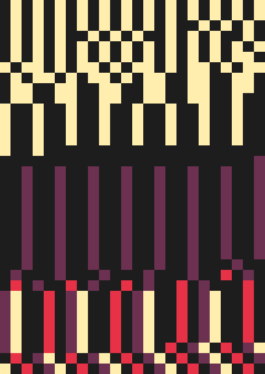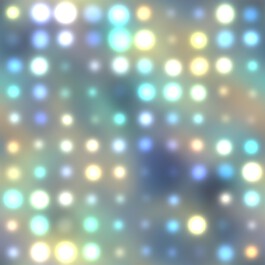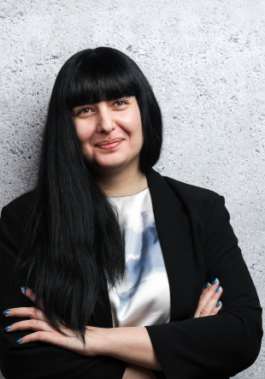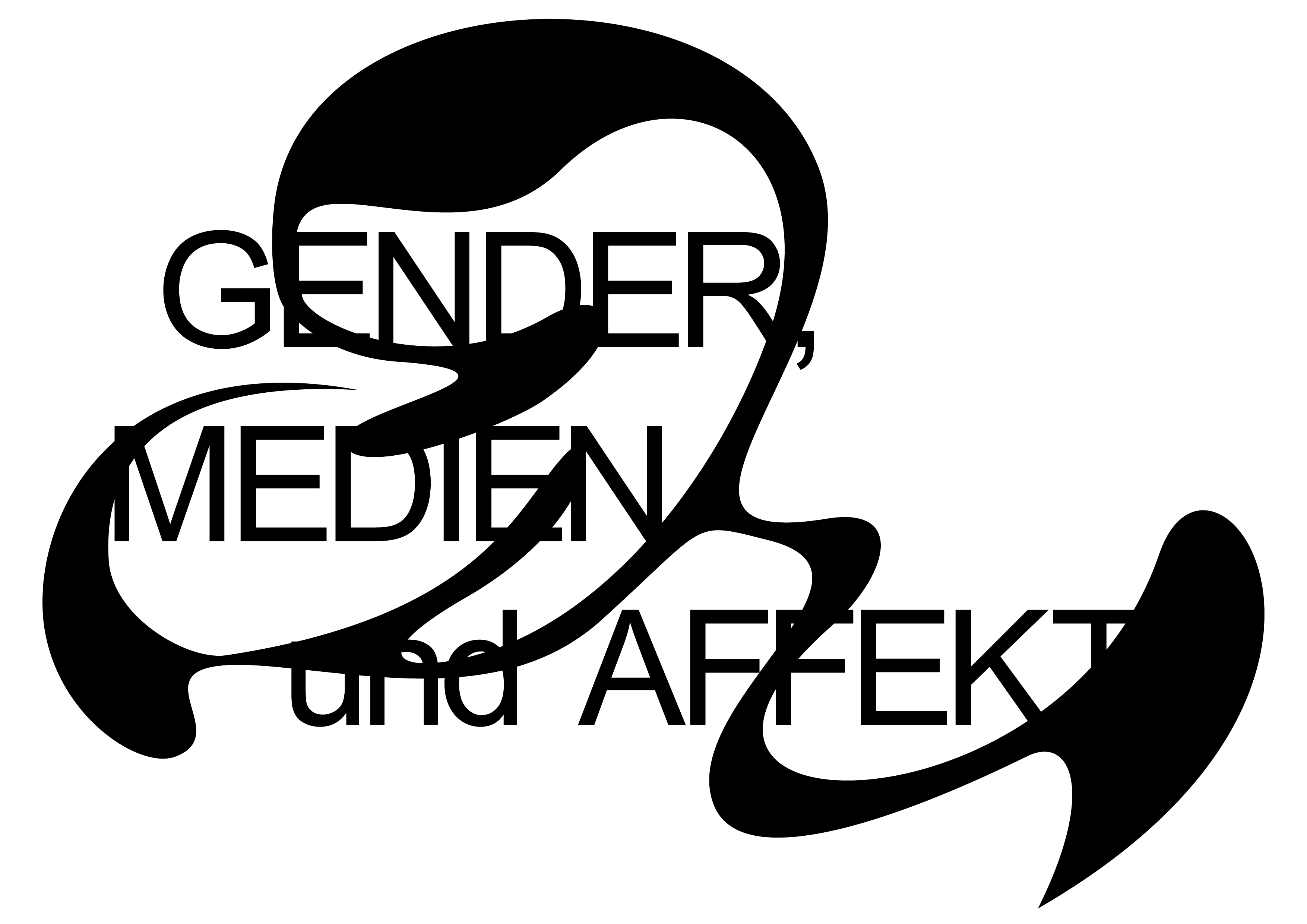Julia Bee
is a media and cultural scientist and junior professor for image theory at the Bauhaus University in Weimar. In the winter semester 2020/21, she was a Mercator Fellow at the SFB Media of Cooperation at the University of Siegen, where she researched cycling practices and their media. Current areas of work: Visual anthropology and experimental practices, gender, affect and media, cycling media and mobility justice, film and the Anthropocene.
Recent Publications: Differences and Affirmation, queerfeminist positions on mediality., ed. with Nicole Kandioler, Berlin 2020, Experiment, learn, exchange techniques, ein spekulatives Handbuch, ed. with Gerko Egert, Berlin/Weimar 2020, "Diffraktion - Individuation - Spekulation. Zur Methodendebatte in den Medienwissenschaften", in: Zeitschrift für Medienwissenschaft 22, 2020, with Jennifer Eickelmann and Kat Köppert.
Jasmin Degeling
is a post-doc at the Institute for Media Studies at Ruhr-Uni Bochum, member of the Gender Studies Directorate at RUB, co-spokesperson of the Gender and Queer Studies Working Group of the Society for Media Studies and co-editor of the online journal kultur&geschlecht. Previously, she was a staff member at the Institute of Theatre Studies RUB (2014-2018), a member of the collaborative network "Queer Temporalities and Media Aesthetic" (RUB/ Northwestern University/ Illinois, 2016-2018),Visiting Scholar at the German Department/ UC Berkeley (2014) and Scholar in the PhD-Net "The Knowledge of Literature", HU Berlin (2013-2014). Her work focuses on media of concern, gender and queer studies, biopolitics, political affects, and digital fascism. Best Publication Award Gender&Medien 2019 for the article "'Queer at stake'. Biting reflexes, queer movement history and contemporary affect cultures", with Sarah Horn, in: onlinejournal kultur & geschlecht 21, June 2018.

Jennifer Eickelmann
is a media scientist and sociologist with a focus on cultural studies. Since 2011 she has been a research assistant at the Institute of Sociology. Since 2011 she has been a research assistant at the Institute of Sociology, including a project on experience orientation in museums (2014-2017) and on the hinge function of museum guards (2016-2019). In 2017, she completed her PhD at the Institute for Media Studies at Ruhr-Universität Bochum with a thesis on the materiality of mediatised defiance. In 2018, her article 'Mediatised disrespect. Anerkennungsordnungen in digitalen Öffentlichkeiten' (published in Thomas, T. et al. (eds.): Anerkennung und Sichtbarkeit, Bielefeld: transcript) received the Best Publication Award Gender & Media. Her research focuses on the intersection of media studies, especially gender/queer media studies, cultural sociology and the sociology of inequality and deals with theories and aesthetics of the digital and affective public spheres, especially social media, and the transformation of museums as institutions/organisations and museum practices. Medienwissenschaftlerin und Soziologin. Seit 2011 ist sie als wiss. Mitarbeiterin am Institut für Soziologie beschäftigt, u.a. in einem Projekt zu Erlebnisorientierung in Museen (2014-2017) und zur Scharnierfunktion von Museumsaufsichten (2016-2019). 2017 hat sie am Institut für Medienwissenschaft der Ruhr-Universität Bochum mit einer Arbeit über die Materialität mediatisierter Missachtung promoviert. 2018 wurde ihr Artikel ‚Mediatisierte Missachtung. Anerkennungsordnungen in digitalen Öffentlichkeiten‘ (erschienen in Thomas, T. et al. (Hg.): Anerkennung und Sichtbarkeit, Bielefeld: transcript) mit dem Best Publication Award Gender & Medien ausgezeichnet. Ihre Forschungsschwerpunkte liegen an der Schnittstelle von Medienwissenschaft, insb. Gender/Queer Media Studies, Kultur- und Ungleichheitssoziologie und beschäftigen sich u.a. mit Theorien und Ästhetiken des Digitalen und affektiver Öffentlichkeiten, insb. ‚Social Media‘ und dem Wandel von Museen als Institution/Organisation sowie musealen Praktiken.

Maja Figge
currently holds the professorship for Media Cultural Studies at the Heinrich Heine University Düsseldorf. From 2017-2020, she was a postdoctoral fellow at the DFG Research Training Group "The Knowledge of the Arts" at the Berlin University of the Arts; in between, she was a Visiting Professor of Media Theories at the Linz University of the Arts in the 2017/18 academic year, a Visiting Scholar at the "Program in Literature" at Duke University, Durham in August-October 2019, and a representative of the Professorship of History and Theory of Visual Media at the University of Fine Arts Braunschweig in the summer semester of 2020. Her focuses are media/film theory and history, moving image media, gender, race and media, critical whiteness studies, postcolonial (media) theory, media memory politics and political sentiments, film and history, cinematic modernism. Currently she is working on a study with the working title "Entangled Modernisms. Transnational Film Relations between Western Europe and India and the Emergence of Modern Cinema (1947-1975).
Irina Gradinari
is a junior professor of gender studies in literature and media studies at the Fern University in Hagen. She was invited to speak on the topic "Genre, Gender and Lustmord. Murderous gender fantasies in German-language contemporary prose" in 2010 and has published a doctoral thesis in 2019 on "Film as a medium of collective memories. The Politics of History and the Transfer of Discourse between East and West". Her research interests include feminist theories of the gaze, the constitutive interrelation of genre and gender, cultures of memory and comparative studies. 2010 promoviert und hat 2019 zu Film als Medium kollektiver Erinnerungen, Geschichtspolitik und Diskurstransfer zwischen Ost und West habilitiert. Zu ihren Forschungsschwerpunkten zählen feministische Blicktheorien, der konstitutive Wechselbezug von Genre und Gender, Erinnerungskulturen und komparatistische Studien.

Sarah Horn
has been a research associate at the Institute for Film, Theater, Media, and Cultural Studies at Johannes Gutenberg University Mainz since October 2020. She studied media studies in Cologne and Bochum and was a fellow at the DFG Research Training Group »Das Dokumentarische. Exzess und Entzug« at the Ruhr University Bochum. Dissertation on Testo-Techniken. Queere Zeitlichkeiten und Selbstdokumentation in trans* Vlogs (defended). Also, since October 2020, she is co-spokesperson of the Gender / Queer Studies and Media Studies of the Society for Media Studies. Most recently published: Esra Canpalat, Maren Haffke, Sarah Horn, Felix Hüttemann, Matthias Preuss(2020): Einleitung. Operationen, Foren, Interventionen – Eine Annäherung an den Begriff Gegen\Dokumentation, in this. (ed.): Gegen\Dokumentation. Operationen - Foren - Interventionen. Bielefeld: transcript Verlag, pp. 7-24. Testo-Techniken. Queere Zeitlichkeiten und Selbstdokumentation in trans* Vlogs (verteidigt). Ebenfalls seit Oktober 2020 ist sie Co-Sprecherin der AG Gender / Queer Studies und Medienwissenschaft der Gesellschaft für Medienwissenschaft. Zuletzt erschienen: Esra Canpalat, Maren Haffke, Sarah Horn, Felix Hüttemann, Matthias Preuss(2020): Einleitung. Operationen, Foren, Interventionen – Eine Annäherung an den Begriff Gegen\Dokumentation, in: dies. (Hg.): Gegen\Dokumentation. Operationen - Foren - Interventionen. Bielefeld: transcript Verlag, S. 7-24.

Çiğdem Inan
Çiğdem Inan ist Soziologin. Ihre Lehr- und Forschungsschwerpunkte sind Affekttheorie, Poststrukturalismus, kritische Migrationssoziologie, queer-feministische Philosophie, Rassismusforschung und postkoloniale Gesellschaftstheorie. Sie ist Teil des Verlagskollektivs b_books (Berlin) und Herausgeber*in der Publikationsreihe re:fuse, in der sie die Neuauflage von C.L.R. James Die schwarzen Jakobiner. Toussaint Louverture und die Haitianische Revolution mitherausgegeben hat. Die Reihe wird durch die Übersetzung von Lauren Berlants Cruel Optimism und Sylvia Wynters We Must Learn to Sit Down Together and Talk About a Little Culture: Decolonising Essays 1967-1984 fortgesetzt.
Aktuell beschäftigt sie sich mit Politiken negativer Affektivität und Ontologien der Enteignung in Bezug auf rassistische Gewalt, die sie u. a. im Kontext rechter und rassistischer Anschläge in Deutschland diskutiert. Zudem arbeitet sie an ihrem Buch Das Andere des Affektiven, in dem sie klassische und nicht-klassische Philosophien des Affektiven zusammen mit rassismuskritischen Theorien diskutiert.
Zuletzt erschienen sind: „‚Diesmal nicht.’ Zur Enteignung der Trauer“ in einer von ihr mit hg. Ausgabe vonTexte zur Kunst (Juni 2022), „NSU, rassistische Gewalt und affektives Wissen“ in ZRex – Zeitschrift für Rechtsextremismusforschung (Heft 2/2021) sowie „C.L.R. James und die flüchtigen Widerstände der Haitianischen Revolution“ (b_books/Dietz, Berlin 2021).
Goda Klumbytė
is a research associate and PhD candidate at the Gender/Diversity in Informatics Systems research group, University of Kassel, Germany. Her research engages feminist science and technology studies, critical computing and feminist new materialism. Her PhD focuses on knowledge production in and through machine learning systems and critical epistemologies as tools for intervention. Her publications include: contributions to Posthuman Glossary (2018), book chapter in Everyday Feminist Research Praxis (2018), several recent co-authored articles on critical theory and computational practices in Proceedings of the ACM nordiCHI conference (2020), journals Digital Creativity and Online Information Review. She is a co-editor of the upcoming More Posthuman Glossary (2021). Posthuman Glossary (2018), ein Buchkapitel in Everyday Feminist Research Praxis (2018), mehrere aktuelle, gemeinsam verfasste Artikel über kritische Theorie und computergestützte Praktiken in Proceedings of the ACM nordiCHI conference (2020) sowie in den Zeitschriften Digital Creativity and Online Information Review. Sie ist Mitherausgeberin des kommenden More Posthuman Glossary (2021).
Katrin Köppert
ist Kunst- und Medienwissenschaftlerin. Im WiSe 2021/22 und SoSe22 vertritt sie die Professur für Transformationen audiovisueller Medien unter der besonderen Berücksichtigung von Gender und Queer Theory am Institu für Medienwissenschaft an der Ruhr Universität Bochum. Seit Oktober 2019 ist sie Juniorprofessorin für Kunstgeschichte / populäre Kulturen an der Hochschule für Grafik und Buchkunst Leipzig. Zu den Arbeitsschwerpunkten zählen Queer Media Theory, Affect Studies und politische Gefühle, Digitale Feminismen und Kunst, Post-, und Dekoloniale (Medien-)Theorien des Anthropozäns, Gender, Race und Fotografie. Sie leitet mit Julia Bee das DFG-Forschungsnetzwerk Gender, Medien und Affekt. Im Vorstand der Fachgesellschaft Gender Studies ist sie zweite Sprecherin. Sie ist Redaktionsmitglied beim Open Gender Journal und hat den Vorsitz der Akademie für transkulturellen Austausch der HGB Leipzig inne. Zuletzt erschienen ist u.a. die Monographie Queer Pain. Schmerz als Solidarisierung, Fotografie als Affizierung, Berlin: Neofelis.

Isabell Otto
is a professor of media studies at the University of Konstanz. She leads the sub-project Smartphone Communities within the DFG research group Mediale Teilhabe. Participation between Entitlement and Utilization and a project on Dynamics of Closure in Social Media Platforms at the Constance location of the Research Institute for Social Cohesion (FGZ). Her research focuses on: medial participation in digital cultures, media, and cultural studies perspectives on digital games, digital media and social movements, and temporalization of digitally networked media. Smartphone-Gemeinschaften im Rahmen der DFG-Forschungsgruppe Mediale Teilhabe. Partizipation zwischen Anspruch und Inanspruchnahme und ein Projekt zum Thema Dynamiken der Schließung in Social-Media-Plattformen im Konstanzer Standort des Forschungsinstituts Gesellschaftlicher Zusammenhalt (FGZ). Ihre Forschungsschwerpunkte sind: mediale Teilhabe in digitalen Kulturen, medien- und kulturwissenschaftliche Perspektivierungen digitaler Spiele, digitale Medien und soziale Bewegungen sowie Temporalisierungen digital vernetzter Medien.

Nelly Y. Pinkrah
is a cultural and media theorist and political activist, mainly involved in anti-racist, empowerment, and community-building projects. In addition to writing about racism, gender, and media (&) technology for mainstream media newspapers and magazines, Nelly also gives workshops on these topics. She is working on her doctoral thesis about Édouard Glissant and cybernetics at Leuphana University Lüneburg. Nelly is the assistant to the Chair of Media Theory and History here, and is associated with the Centre for Digital Cultures. She is also currently a lecturer at the Rijksuniversiteit Groningen. From October 2018 to May 2019 she was a Doctoral Fellow at the Global Emergent Media Lab at Concordia University, Montréal. In 2019, she organized the first Stanford Leuphana Summer Academy on Media Studies. Her latest publication is Critique and the Digital co-edited with Erich Hörl and Lotte Warnsholdt (2020) published by diaphanes Verlag, Zurich and Chicago University Press. gender, Technologie und das Digitale, für verschiedene Organisationen gibt sie Workshops zu den Themen. Am DFG-Graduiertenkolleg »Kulturen der Kritik« der Leuphana Universität Lüneburg promoviert sie über Édouard Glissant und Kybernetik. Dort arbeitet sie zudem als Assistentin der Professur für Medientheorie und -geschichte und ist assoziiert am Center for Digital Cultures. Von Oktober 2018 bis Mai 2019 war sie Doctoral Fellow am Global Emergent Media Lab an der Concordia University, Montréal. 2019 organisierte sie die erste Stanford Leuphana Summer Academy on Media Studies. Im Frühjahr/Sommer 2021 erscheint eine Sammelschrift mit Manuela Bojadzijev und Lisa Nakamura zu Rassismus und Digitalen Medien in der Minnesota UP/meson press-Reihe In Search of Media.

Mary Shnayien
ist Akademische Rätin am Institut für Medienwissenschaften der Universität Paderborn. Von 2020-2021 war sie wissenschaftliche Mitarbeiterin am Lehrstuhl für Virtual Humanities des Institut für Medienwissenschaft an der Ruhr-Universität Bochum, von 2017-2020 Kollegiatin im NRW-Forschungskolleg SecHuman – Sicherheit für Menschen im Cyberspace. Seit 2017 ist sie Ko-Koordinatorin des Forum Digitalisierung der Gesellschaft für Medienwissenschaft. Zuletzt erschienen: Die unsicheren Kanäle. Negative und queere Sicherheit in Kryptologie und Informatik.


Véronique Sina
Im Sommersemester 2023 vertritt Dr. Véronique Sina die Professur für Filmwissenschaft an der Goethe-Universität Frankfurt. Seit Oktober 2022 leitet sie am dortigen Institut für Theater-, Film- und Medienwissenschaft das von der DFG geförderte Forschungsprojekt „Queering Jewishness – Jewish Queerness. Diskursive Inszenierungen von Geschlecht und ‚jüdischer Differenz‘ in (audio-)visuellen Medien“. Im Sommersemester 2022 hat sie die Professur für „Medienakteure und Medienöffentlichkeit unter besonderer Berücksichtigung von Gender“ am Institut für Medienwissenschaft der Ruhr-Universität Bochum vertreten.
Zuvor war sie als Wissenschaftliche Mitarbeiterin (Postdoc) an den medienwissenschaftlichen Instituten der Johannes Gutenberg-Universität Mainz, der Universität zu Köln, der Eberhard Karls Universität Tübingen und der Ruhr-Universität Bochum tätig. Zudem war sie Koordinatorin an der zentralen wissenschaftlichen Einrichtung GeStiK (Gender Studies in Köln). Darüber hinaus hat sie am Institut für Medienwissenschaft der Philipps Universität Marburg, in der Fachgruppe Medienwissenschaft der Universität Bayreuth, am Institut für Medien der Kunstuniversität Linz (Abteilung für Medientheorie) sowie am Institut für Medien- und Kulturwissenschaft der Heinrich Heine Universität Düsseldorf gelehrt. An der Ruhr-Universität Bochum hat sie am Institut für Medienwissenschaft mit einer Arbeit zu „Comic – Film – Gender. Zur (Re-)Medialisierung von Geschlecht im Comicfilm“ promoviert, die 2016 im transcript Verlag erschienen ist. Von 2017 bis 2019 war sie als Postdoc am DFG-Graduiertenkolleg „Das Dokumentarische. Exzess und Entzug“ assoziiert. Aktuell ist sie an der Siegener Forschungsstelle „Queery/ing Popular Culture“ sowie am SELMA STERN ZENTRUM für Jüdische Studien Berlin-Brandenburg assoziiert. Zudem ist sie ist Initiatorin und Mitbegründerin der AG Comicforschung der Gesellschaft für Medienwissenschaft (GfM) sowie Mitherausgeberin der interdisziplinären Publikationsreihe „Comicstudien“, die im de Gruyter Verlag erscheint.

Stephan Trinkaus
currently works at the Functional Unit Gender Sociology at the University of Potsdam. He studied Literature and Political Science at the University of Hannover, where he received his PhD in 2005 with the thesis 'Blank Spaces - Incest and Gift as Figurations of the Origin of Culture'. He then worked at the Institute for Media and Cultural Studies at Heinrich Heine University Düsseldorf, where he habilitated in 2017 with the thesis 'Prekäre Gemeinschaft - Zu einer diffraktiven Theorie des Haltens'. He has held professorships in media studies in Cologne, Düsseldorf, and Bayreuth, was a visiting professor at the Institute for Theater, Film, and Media at the University of Vienna in the summer of 2015, and from 2018 to 2021 will be at the Faculty of Sociology at the University of Bielefeld in the area of gender studies. His research interests include media and cultural theory, precarity and gender, New Materialism, STS, psychoanalysis, post- and decoloniality, TV/screen and affect studies, queer theory.

Julia Bee
is a media and cultural scientist and junior professor for image theory at the Bauhaus University in Weimar. In the winter semester 2020/21, she was a Mercator Fellow at the SFB Media of Cooperation at the University of Siegen, where she researched cycling practices and their media. Current areas of work: Visual anthropology and experimental practices, gender, affect and media, cycling media and mobility justice, film and the Anthropocene.
Recent Publications: Differences and Affirmation, queerfeminist positions on mediality., ed. with Nicole Kandioler, Berlin 2020, Experiment, learn, exchange techniques, ein spekulatives Handbuch, ed. with Gerko Egert, Berlin/Weimar 2020, "Diffraktion - Individuation - Spekulation. Zur Methodendebatte in den Medienwissenschaften", in: Zeitschrift für Medienwissenschaft 22, 2020, with Jennifer Eickelmann and Kat Köppert.
Jasmin Degeling
is a post-doc at the Institute for Media Studies at Ruhr-Uni Bochum, member of the Gender Studies Directorate at RUB, co-spokesperson of the Gender and Queer Studies Working Group of the Society for Media Studies and co-editor of the online journal kultur&geschlecht. Previously, she was a staff member at the Institute of Theatre Studies RUB (2014-2018), a member of the collaborative network "Queer Temporalities and Media Aesthetic" (RUB/ Northwestern University/ Illinois, 2016-2018),Visiting Scholar at the German Department/ UC Berkeley (2014) and Scholar in the PhD-Net "The Knowledge of Literature", HU Berlin (2013-2014). Her work focuses on media of concern, gender and queer studies, biopolitics, political affects, and digital fascism. Best Publication Award Gender&Medien 2019 for the article "'Queer at stake'. Biting reflexes, queer movement history and contemporary affect cultures", with Sarah Horn, in: onlinejournal kultur & geschlecht 21, June 2018.

Jennifer Eickelmann
is a media scientist and sociologist with a focus on cultural studies. Since 2011 she has been a research assistant at the Institute of Sociology. Since 2011 she has been a research assistant at the Institute of Sociology, including a project on experience orientation in museums (2014-2017) and on the hinge function of museum guards (2016-2019). In 2017, she completed her PhD at the Institute for Media Studies at Ruhr-Universität Bochum with a thesis on the materiality of mediatised defiance. In 2018, her article 'Mediatised disrespect. Anerkennungsordnungen in digitalen Öffentlichkeiten' (published in Thomas, T. et al. (eds.): Anerkennung und Sichtbarkeit, Bielefeld: transcript) received the Best Publication Award Gender & Media. Her research focuses on the intersection of media studies, especially gender/queer media studies, cultural sociology and the sociology of inequality and deals with theories and aesthetics of the digital and affective public spheres, especially social media, and the transformation of museums as institutions/organisations and museum practices. Medienwissenschaftlerin und Soziologin. Seit 2011 ist sie als wiss. Mitarbeiterin am Institut für Soziologie beschäftigt, u.a. in einem Projekt zu Erlebnisorientierung in Museen (2014-2017) und zur Scharnierfunktion von Museumsaufsichten (2016-2019). 2017 hat sie am Institut für Medienwissenschaft der Ruhr-Universität Bochum mit einer Arbeit über die Materialität mediatisierter Missachtung promoviert. 2018 wurde ihr Artikel ‚Mediatisierte Missachtung. Anerkennungsordnungen in digitalen Öffentlichkeiten‘ (erschienen in Thomas, T. et al. (Hg.): Anerkennung und Sichtbarkeit, Bielefeld: transcript) mit dem Best Publication Award Gender & Medien ausgezeichnet. Ihre Forschungsschwerpunkte liegen an der Schnittstelle von Medienwissenschaft, insb. Gender/Queer Media Studies, Kultur- und Ungleichheitssoziologie und beschäftigen sich u.a. mit Theorien und Ästhetiken des Digitalen und affektiver Öffentlichkeiten, insb. ‚Social Media‘ und dem Wandel von Museen als Institution/Organisation sowie musealen Praktiken.

Maja Figge
currently holds the professorship for Media Cultural Studies at the Heinrich Heine University Düsseldorf. From 2017-2020, she was a postdoctoral fellow at the DFG Research Training Group "The Knowledge of the Arts" at the Berlin University of the Arts; in between, she was a Visiting Professor of Media Theories at the Linz University of the Arts in the 2017/18 academic year, a Visiting Scholar at the "Program in Literature" at Duke University, Durham in August-October 2019, and a representative of the Professorship of History and Theory of Visual Media at the University of Fine Arts Braunschweig in the summer semester of 2020. Her focuses are media/film theory and history, moving image media, gender, race and media, critical whiteness studies, postcolonial (media) theory, media memory politics and political sentiments, film and history, cinematic modernism. Currently she is working on a study with the working title "Entangled Modernisms. Transnational Film Relations between Western Europe and India and the Emergence of Modern Cinema (1947-1975).
Irina Gradinari
is a junior professor of gender studies in literature and media studies at the Fern University in Hagen. She was invited to speak on the topic "Genre, Gender and Lustmord. Murderous gender fantasies in German-language contemporary prose" in 2010 and has published a doctoral thesis in 2019 on "Film as a medium of collective memories. The Politics of History and the Transfer of Discourse between East and West". Her research interests include feminist theories of the gaze, the constitutive interrelation of genre and gender, cultures of memory and comparative studies. 2010 promoviert und hat 2019 zu Film als Medium kollektiver Erinnerungen, Geschichtspolitik und Diskurstransfer zwischen Ost und West habilitiert. Zu ihren Forschungsschwerpunkten zählen feministische Blicktheorien, der konstitutive Wechselbezug von Genre und Gender, Erinnerungskulturen und komparatistische Studien.

Sarah Horn
has been a research associate at the Institute for Film, Theater, Media, and Cultural Studies at Johannes Gutenberg University Mainz since October 2020. She studied media studies in Cologne and Bochum and was a fellow at the DFG Research Training Group »Das Dokumentarische. Exzess und Entzug« at the Ruhr University Bochum. Dissertation on Testo-Techniken. Queere Zeitlichkeiten und Selbstdokumentation in trans* Vlogs (defended). Also, since October 2020, she is co-spokesperson of the Gender / Queer Studies and Media Studies of the Society for Media Studies. Most recently published: Esra Canpalat, Maren Haffke, Sarah Horn, Felix Hüttemann, Matthias Preuss(2020): Einleitung. Operationen, Foren, Interventionen – Eine Annäherung an den Begriff Gegen\Dokumentation, in this. (ed.): Gegen\Dokumentation. Operationen - Foren - Interventionen. Bielefeld: transcript Verlag, pp. 7-24. Testo-Techniken. Queere Zeitlichkeiten und Selbstdokumentation in trans* Vlogs (verteidigt). Ebenfalls seit Oktober 2020 ist sie Co-Sprecherin der AG Gender / Queer Studies und Medienwissenschaft der Gesellschaft für Medienwissenschaft. Zuletzt erschienen: Esra Canpalat, Maren Haffke, Sarah Horn, Felix Hüttemann, Matthias Preuss(2020): Einleitung. Operationen, Foren, Interventionen – Eine Annäherung an den Begriff Gegen\Dokumentation, in: dies. (Hg.): Gegen\Dokumentation. Operationen - Foren - Interventionen. Bielefeld: transcript Verlag, S. 7-24.

Çiğdem Inan
Çiğdem Inan ist Soziologin. Ihre Lehr- und Forschungsschwerpunkte sind Affekttheorie, Poststrukturalismus, kritische Migrationssoziologie, queer-feministische Philosophie, Rassismusforschung und postkoloniale Gesellschaftstheorie. Sie ist Teil des Verlagskollektivs b_books (Berlin) und Herausgeber*in der Publikationsreihe re:fuse, in der sie die Neuauflage von C.L.R. James Die schwarzen Jakobiner. Toussaint Louverture und die Haitianische Revolution mitherausgegeben hat. Die Reihe wird durch die Übersetzung von Lauren Berlants Cruel Optimism und Sylvia Wynters We Must Learn to Sit Down Together and Talk About a Little Culture: Decolonising Essays 1967-1984 fortgesetzt.
Aktuell beschäftigt sie sich mit Politiken negativer Affektivität und Ontologien der Enteignung in Bezug auf rassistische Gewalt, die sie u. a. im Kontext rechter und rassistischer Anschläge in Deutschland diskutiert. Zudem arbeitet sie an ihrem Buch Das Andere des Affektiven, in dem sie klassische und nicht-klassische Philosophien des Affektiven zusammen mit rassismuskritischen Theorien diskutiert.
Zuletzt erschienen sind: „‚Diesmal nicht.’ Zur Enteignung der Trauer“ in einer von ihr mit hg. Ausgabe vonTexte zur Kunst (Juni 2022), „NSU, rassistische Gewalt und affektives Wissen“ in ZRex – Zeitschrift für Rechtsextremismusforschung (Heft 2/2021) sowie „C.L.R. James und die flüchtigen Widerstände der Haitianischen Revolution“ (b_books/Dietz, Berlin 2021).
